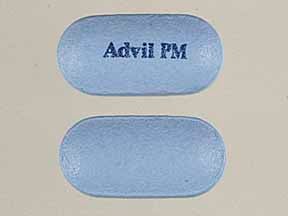
Advil Pm Coupons & Savings Card – Discount Prices from $3.90
Our Advil Pm coupons are free to use. You can print the coupon, email it to yourself, or receive the Advil Pm coupon via text message. To get your free discount, show the pharmacist your Advil Pm savings card which has the discounted coupon price. Use our filters below to edit the prescription box to match your needs. The Advil Pm prices will update based on your prescription needs. Above our Advil Pm coupons, you can change the location to see pharmacy prices in other areas. Our prescription discount card will update online with the specific pharmacy costs associated with your edits. Be sure to text, email, or print the Advil Pm savings card code that you need after editing the prescription box and location field. Show the discount card to your pharmacist before paying.
My prescription
Edit
200-38MG, Advil Pm (4 Tablets)
Select pharmacy

CVS
$26.10
COUPON PRICE
Albertsons
$3.90
COUPON PRICE
Walgreens
$4.04
COUPON PRICE
Walmart
$7.28
COUPON PRICEAdvil Pm savings card
Show this card to your pharmacist
Albertsons
$3.90
BIN
ID
PCN
GRP
011867
LH1F3547D1
HT
LABH001
Powered by
Our Advil Pm coupons are free to use. You can print the coupon, email it to yourself, or receive the Advil Pm coupon via text message. To get your free discount, show the pharmacist your Advil Pm savings card which has the discounted coupon price. Use our filters below to edit the prescription box to match your needs. The Advil Pm prices will update based on your prescription needs. Above our Advil Pm coupons, you can change the location to see pharmacy prices in other areas. Our prescription discount card will update online with the specific pharmacy costs associated with your edits. Be sure to text, email, or print the Advil Pm savings card code that you need after editing the prescription box and location field. Show the discount card to your pharmacist before paying.
Advil Pm FAQs
Using the SaveHealth discount card, what is the price of Advil Pm without insurance?
Using the SaveHealth discount card, the price of Advil Pm without insurance is $3.90.
What is the price of Advil Pm at CVS?
The price of Advil Pm at CVS is $26.10.
What is the price of Advil Pm at Walgreens?
The price of Advil Pm at Walgreens is $4.04.
What is the price of Advil Pm at Walmart?
The price of Advil Pm at Walmart is $7.28.
